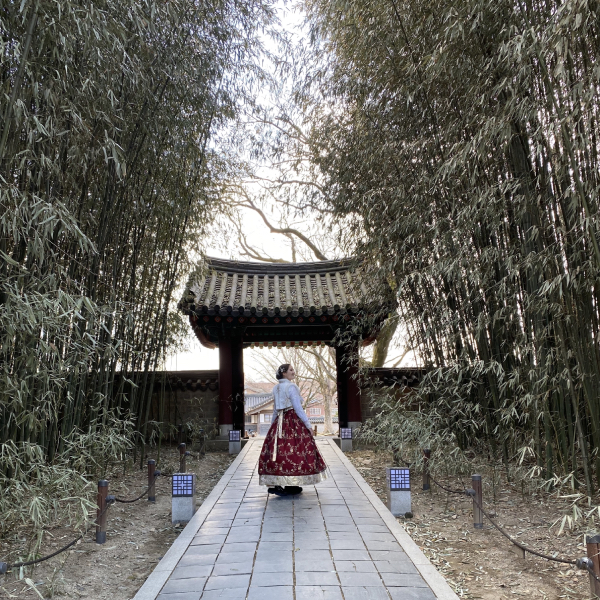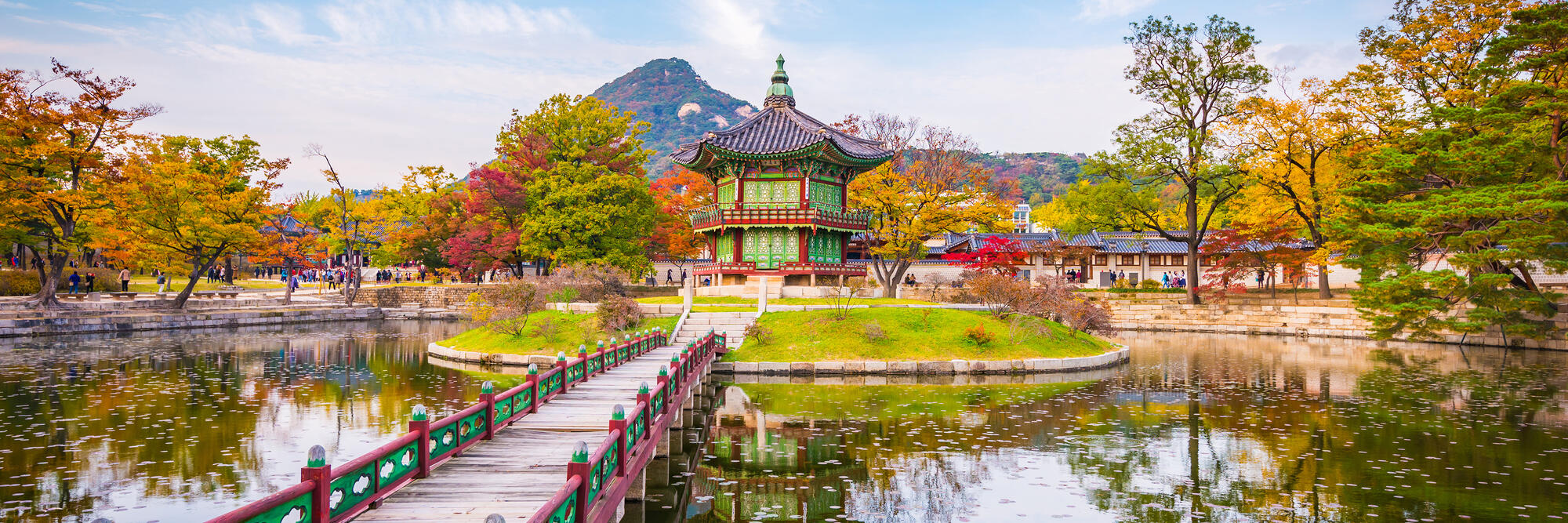Bronwyn is currently completing her master’s in clinical psychology. She moved to South Korea to teach English and make some money while learning about the culture and life in a new country. She loves to travel and is grateful for the opportunity to do so. Although she’s now back at home in South Africa, she shares with us her experiences in South Korea and some advice for expats wanting to make the move.
About Bronwyn
Q: Where are you originally from?
A: Cape Town, South Africa
Q: Where are you currently living?
A: I was living in Pocheon-si, Gyeonggi-do, South Korea
Q: When did you move here?
A: I moved at the beginning of 2020 and lived there for just over a year.
Q: Is this your first expat experience?
A: Yes
Q: Did you move here alone or with a spouse/family?
A: I moved alone.
Q: Why did you move? What do you do?
A: I moved because I wanted to travel and earn money at the same time. I worked as an EPIK English teacher.
Living in South Korea
Q: What do you enjoy most about South Korea? How would you rate the quality of life compared to South Africa?
A: Getting to experience a new culture was really exciting for me: meeting new people, learning the language and the history, and trying the many delicious foods. In terms of the quality of life, the transport in Korea is exceptional compared to that in SA. You are able to travel all around the country via buses or trains at a very reasonable price. In my experience, Korea is very safe. Unlike in SA, you can leave your belongings on the table and go to the bathroom, and they will still be there when you return. The national health insurance is amazing; any time I went to the doctor, it was significantly cheaper than it would have been in SA. My housing was paid for, so I don’t know the exact details of the housing market, but I have heard that it can be quite expensive because they require a large security deposit.
Q: Any negative experiences? What did you miss most about home?
A: I wouldn’t say that I had any negative experiences living in Korea. However, the language barrier can be hard, especially if you live in a rural town like I did. The bigger cities are more populated with expats, and the Korean citizens are more confident speaking English there. Occasionally, I struggled with loneliness because I was not able to interact with other English-speaking foreigners, but this is mostly due to COVID, because travelling to friends was discouraged. I missed my friends and family the most. Other than that, there are South African restaurants (Pie Republic in Seoul and Braai Republic in Pyeongtaek) and there is even a Spazza shop where you can buy your favourite SA snacks (called Lekker Saffa Spazza).
Q: What are the biggest adjustments you had to make when settling into expat life here? Did you experience any particular elements of culture shock?
A: The biggest adjustment for me was the language barrier, but I did spend my first few weeks studying Korean and was able to hold basic conversations. Korea is very accommodating to foreigners who would like to learn the language; they even provide several free courses that you can attend. There are also traditions, like taking off your shoes, sitting on the floor, bowing in greeting, and the hierarchical structure. It can take a bit of time to learn all these aspects, but people are always really touched to see that you appreciate their culture and are trying to engage in the customs. I didn’t experience any major culture shock, but it took some time for me to adjust to the spiciness of the food, which I now miss so much, and even cook at home!
Q: What’s the cost of living compared to home? Is there anything particularly expensive or particularly cheap in South Korea?
A: It can be expensive if you want branded or imported things, but there are generally very cost-efficient options as well. They have several department stores that have a discount system and a bulk discount (Homeplus, Costco, Emart). There are also many vintage and second-hand clothing stores, as well as stores that frequently have buy-one-get-one-free specials. The one thing that I found more expensive than in SA was meat, so I mostly bought it in bulk or on special.
Q: How would you rate the public transport in South Korea?
A: The public transport is excellent and very affordable. They also have different options when booking long-distance journeys, which range in cost and comfort.
Q: How would you rate the healthcare in South Korea?
A: I had very good experiences with the healthcare. It was sometimes difficult to explain to the receptionists and nurses what my symptoms were because they mostly spoke Korean, but the doctors were able to speak English. If you need an in-depth consultation, it might be best to search for an English-speaking hospital in your area – there are many hospitals that cater to expats.
Q: What are the biggest safety issues facing expats living in South Korea? Are there any areas expats should avoid?
A: I didn’t face any issues regarding my safety. Sometimes the older Korean men were very fascinated with where I came from and why I was in Korea, which at times could feel intimidating. But, mostly, they were just curious about foreigners.
Q: How do you rate the standard of housing in South Korea?
A: My housing was paid for by my employer, so I am unable to give an accurate answer. From what I have heard from other people, the security deposit can be quite expensive, and it is important to use an estate agent so that the negotiations can be done in Korean and nothing is lost in translation. I have heard that there are occasionally housing scandals where the estate agent is a fraud and the security deposit is pocketed. However, I’m not sure how frequently that occurs.
Q: Any areas or suburbs you’d recommend for expats to live in?
A: There are many wonderful areas in South Korea. I think that if you are looking to live near other expats, Seoul is probably the best place for you. Itaewon (a neighbourhood in Seoul) is particularly populated with foreigners. Personally, I really enjoyed Busan because it reminded me of Cape Town. There are beaches as well as mountains to explore in Busan.
Meeting people and making friends
Q: How tolerant are the locals of foreigners? Is there obvious discrimination against any particular group?
A: The locals were very accepting of me. Since I was living in a small town, I began to recognise the employees at the grocery shop and the people I passed on my walks to school. Many times, I was approached by people who wanted to try to speak English with me, and my pupils always greeted me in town. However, I have heard that non-Western-looking foreigners can experience discrimination, more so in rural areas than in cities.
Q: Was meeting people and making friends easy? How did you go about meeting new people?
A: I met most of my friends through the EPIK orientation for English teachers. However, there are many language exchange apps and even some language exchange cafes where you can meet some of the local people. There are several Kakao and Facebook groups on which you can get in contact with other expats. I found that the other South Africans were always very friendly and willing to meet up. It was difficult to meet people last year because of COVID restrictions, but I believe that if you put in some effort, you will be able to make friends.
Q: Did you make friends with locals or do you mix mainly with other expats? What advice would you give to new expats looking to make friends with the locals?
A: I mostly mixed with other expats; however, I did make some friends with the other teachers at my school. Schools and workplaces in Korea often have company dinners (called hweshik ). This is a great place to make friends with your colleagues. Sometimes you will go for dinner and drinks for the first round and then continue on to a karaoke room. Otherwise, language exchange programmes are the best way to meet Korean people who want to better their English.
Working in South Korea
Q: Was getting a work permit or visa a relatively easy process?
A: Since I went through an approved English teacher programme, my visa was sponsored by EPIK, which made the process quite easy. If you are moving with a job placement secured, I think it is a relatively easy process, and the consulate in South Africa is efficient. Korea also offers a job-seeking visa, which gives you some time to find a job once in the country. This visa is offered to anyone who has studied at a university, with a ranking above 200, in the last three years (I know that UCT is eligible), studied in Korea in the last three years or worked for a Fortune 500 company.
Q: What is the economic climate in South Korea like? Do you have any tips for expats looking to find a job? Which resources did you find most useful?
A: I can only answer in relation to teaching. There are many opportunities for individuals who would like to teach English or work as an English professor at a university. In my experience, the local schools like South Africans. Your employability will increase if you have practical experience or a master’s degree in education. In order to work as an English teacher, you must have a bachelor’s degree and a TEFL or TESOL certificate unless you are a qualified English teacher already. The EPIK webpage is very helpful for people wishing to enter public schools.
Family and children
Q: What are the schools like? Any particular suggestions?
A: The schools are generally better than in SA, in that even the rural or poorer areas will have access to good resources. The teachers are required to move schools every few years, which means that there are always good teachers even in rural areas. There are also private schools and international schools, which will be easier for an expat child to attend because they can teach in English.
Final thoughts
Q: Is there any advice you would like to offer new expat arrivals to South Korea?
A: My advice would be to accept that you are in a different country, and it will not be the same as home. Instead of focusing on what you miss, be open to experiencing all the new and wonderful things that Korea has to offer!
►Interviewed in June 2021



